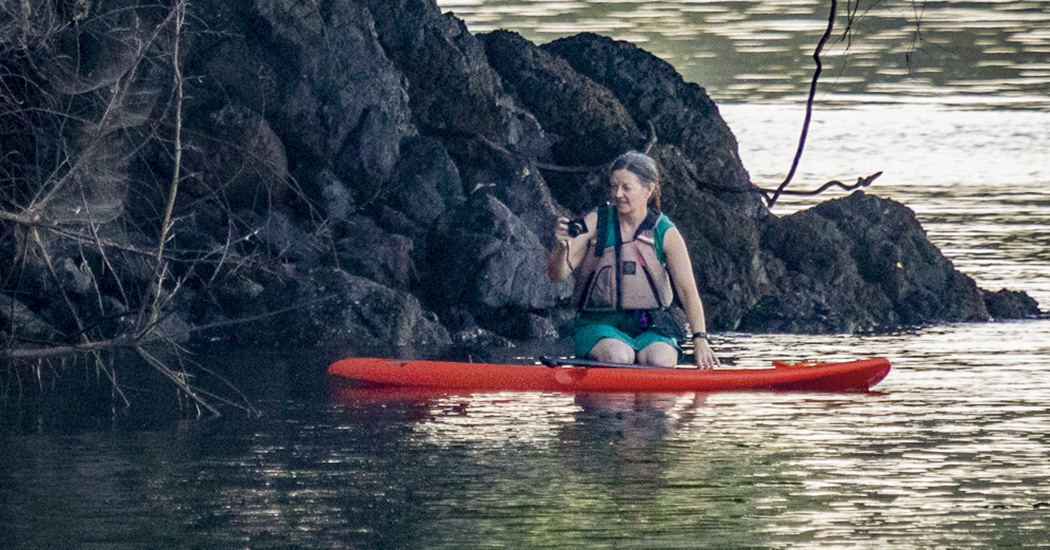About the Field Study Program
Develop your research skills while experiencing Costa Rican culture and diverse landscapes. Since 1999, Augustana students have been travelling to Costa Rica to conduct field research on tropical biodiversity. Since then, students have presented their findings at Augustana’s Student Academic Conference and at provincial and international scientific meetings and conferences.
Trip Information

Why Study in Costa Rica?
Get a taste of the tropical biodiversity in the Osa Peninsula of Costa Rica during a two-week trip exploring ecology. This trip will have students completing their own research projects and sharing their research with the host organization, Osa Conservation.

Where You’ll Be Staying
Osa Conservation sits in the Corcovado National Park, a diverse ecosystem with rich biodiversity, encompassing 50% of the species in Costa Rica and 300+ endemic plant and invertebrate species. Osa is the largest non-governmental organization (NGO) in the peninsula and emphasizes a multi-disciplinary, knowledge-based approach to environmental protection grounded in community engagement.

Activities While Abroad
Students will conduct their own field research project related to ecology and conservation. Field activities occur at the Piro Field Station and include data collection, lab work, data analysis and group meetings. The trip concludes with a 2-3 night ecolodge stay near Puerto Jimenez to finalize projects and relax before heading home.
Student Testimonial

“As part of my program I completed a 15 day study abroad course in Costa Rica to collect data on tropical ecosystems. More specifically, I studied how to prevent an imbalance of male and female sea turtles due to temperature differences during the hatching period. But my favourite part was helping researchers release baby sea turtles into the ocean. I think an important part of university is to try different directions to see what interests you, and Augustana allows for that opportunity.”
Lucille Wang
Environmental Science student and Outstanding Undergraduate Research Award recipient
Courses
Costa Rica Field Studies courses are offered every second year and include a two-week expedition to Costa Rica in the winter term. Students need to apply to participate. Successful applicants will be enrolled in both the classes listed below:
AUBIO 350 or AUENV 350
Fall, 11-week course
Includes readings, seminars and workshops related to the natural history of the tropics, conservation biology and biodiversity methodology. The major project for this course is the preparation of research proposals. In addition, travel preparation is completed in this course, including logistics, safety and health considerations.
Prerequisite: AUBIO 253 (Ecological interactions) and consent of the instructors based on successful completion of the selection process.
AUBIO 459 or AUENV 459
Winter, January 3-week course
Includes the two-week field trip itself, leading to the preparation of a scientific poster. Posters are presented at the Winter Term Student Academic Conference.
Prerequisite: AUBIO350 or ENV 350 and consent of the instructors based on successful completion of the selection process.
costs + supplies
A Mandatory Instructional Support Fee (MIS) will be charged in addition to regular tuition. The MIS fee for 2025 is estimated between $3,500 - $4,800 (2023 cost was approximately $4,200).
Included in MIS fee:
- Return airfare from Edmonton International Airport to Costa Rica
- Ground transportation in Costa Rica
- Trip Cancellation Insurance
- Accommodation and breakfast in San Jose
- Accommodation and all meals at the field station and ecolodge
NOT included in MIS fee:
- Costa Rica airport tax (unless it is included in airfare – varies by airline)
- Food (lunch and dinner) at locations other than the field station (3-4 days)
- Phone and internet access while in Costa Rica
Funding is also available for students to apply for through Education Abroad Awards. Deadline to apply is February 12, 2024.
Supplies
Augustana will supply the equipment needed to carry out the field and lab studies associated with the research proposals. Additional supplies (listed below) are the responsibility of students.
Supplies Checklist:
- Passport
- Travel immunizations as recommended by a public health nurse
- Travel health insurance
- Transportation to and from the Edmonton International Airport
- Appropriate clothing and footwear
- Pocket money
Important Dates
| Information Session | February 2, 2024 |
|---|---|
| Application Deadline | March 1, 2024 |
| Interview Period | Late March 2024 |
| Acceptance Letters Distributed | April 2024 |
| First Payment ($500) | April 30, 2024 |
| Second Payment ($2,000) | September 15, 2024 |
| Final Payment (balance) | December 10, 2024 |
| Departure date | January 6, 2025 |
| Return date | January 21, 2025 |

Contact the Field Study team
Questions about studying in Costa Rica? Contact an advisor or course instructors
Anne McIntosh — Associate Professor, Biology
Email: anne.mcintosh@ualberta.ca
Website
Ivy Schoepf — Assistant Professor, Biology
Email: schoepf@ualberta.ca
Website

